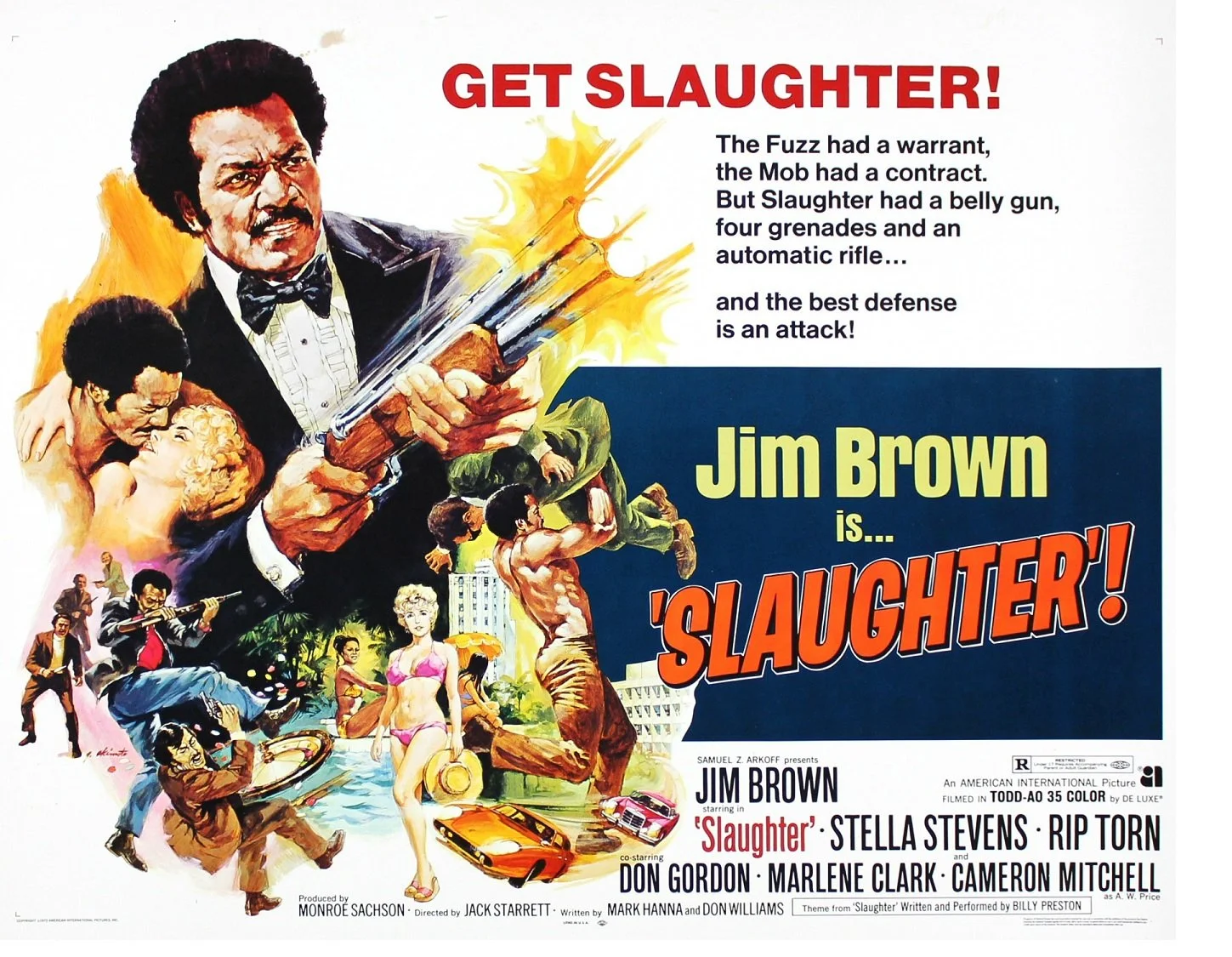The Plot Podcast - Episode 13 - Don't Mess Around With Jim
If you come at him, you better not miss.
Although we cover sports (and pseudo sports) here, we felt it was better to have our tribute to the late great Jim Brown, who passed away this week, was to analyze a small part of his popular culture career, by looking at some of his most-famous Blaxploitation films.
Brown made two films as the Green Beret turned Mob enemy Slaughter, in Slaughter (1972) and Slaughter’s Big Rip Off (1973). In the first, he squares off against the psychotic Rip Torn and in the second, the mob boss tried to take out Slaughter is … Ed McMahon?
Maybe Brown’s best known genre role was as Jimmy in Three The Hard Way, which is like The Blaxploitation Avengers, where he teams up with Fred “The Hammer” Williamson and martial artist Jim Kelly to fight a white supremacist group out to poison the black population of Los Angeles, Detroit and Washington, DC.
If you like old school 1970s violence with plenty of fights, shoot outs and car chases, along with some gratuitous nudity, these pictures are for you. (That presumes you all know about all the cultural mores of the genre, especially the language and the racism.)
We had planned on including the Richard Pryor routine about Jim Brown, but it was just too many bleeps to add for a five minute routine. Listen to it when you get the chance; one of my favorite all-time favorite comedy albums.




